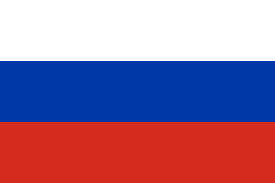Sahara Reporters
From the end of this year, foreigners working in Russia must be tested every three months for diseases like syphilis and leprosy, Human Immunodeficiency Virus, including the novel coronavirus and for drugs, Nigeria Abroad reports.
Foreign business associations are appealing to Moscow to review the rules, and rarely has there been such outrage among foreigners living in Russia, but a legal amendment made public just last week will require foreigners to undergo extensive medical checks.
According to a report from Nigeria Abroad on Monday, the amendment was approved by the Russian parliament in late June, almost six months ago, and is slated to take effect on December 29.
The amendment reveals that foreign professionals, their family members living in Russia and any foreigner who wants to stay in the country for an extended period must be tested every three months for infectious diseases, including syphilis, HIV, leprosy, tuberculosis, and COVID-19. They are also required to take a drug test and must submit their fingerprints and a biometric photo to the authorities.
According to the new rules, the amendment is also applicable to all children over the age of six. If someone tests positive for any of the specified diseases, they will not be granted a visa, and any existing visa will be revoked.
They will be designated “undesirable,” and ordered to leave the country.
The foreigners in the country are already required to present a negative HIV test when applying for a work visa or a residence permit to stay in Russia for longer than 90 days.
The Russian government has not explained what it intends to achieve with the new regulations. However, a letter accompanying the draft law states that the 2.5 million citizens of Belarus, Kazakhstan, Kyrgyzstan, Moldova and Uzbekistan in Russia constitute the majority of foreigners in the country and that they are only randomly subjected to medical tests.
This, the letter pointed out, means there is a risk of the “infiltration and spread of dangerous infectious diseases in Russia.”
Belarusian citizens are explicitly exempted from the new rules — probably because Belarus and Russia are formally a “Union State.” Belarusians do not need a visa to go to Russia, and if they seek employment there, the rules and requirements that apply to them are much simpler.
According to Thorsten Gutmann, the spokesperson of the German-Russian Chamber of Commerce (AHK Russia), his organisation has been working behind the scenes for months to try to get the new regulations dropped. They have, however, had only minimal success.
“Originally, people were going to be required to take the tests every time they entered the country, but now they will have to do them every three months,” Gutmann told DW…


